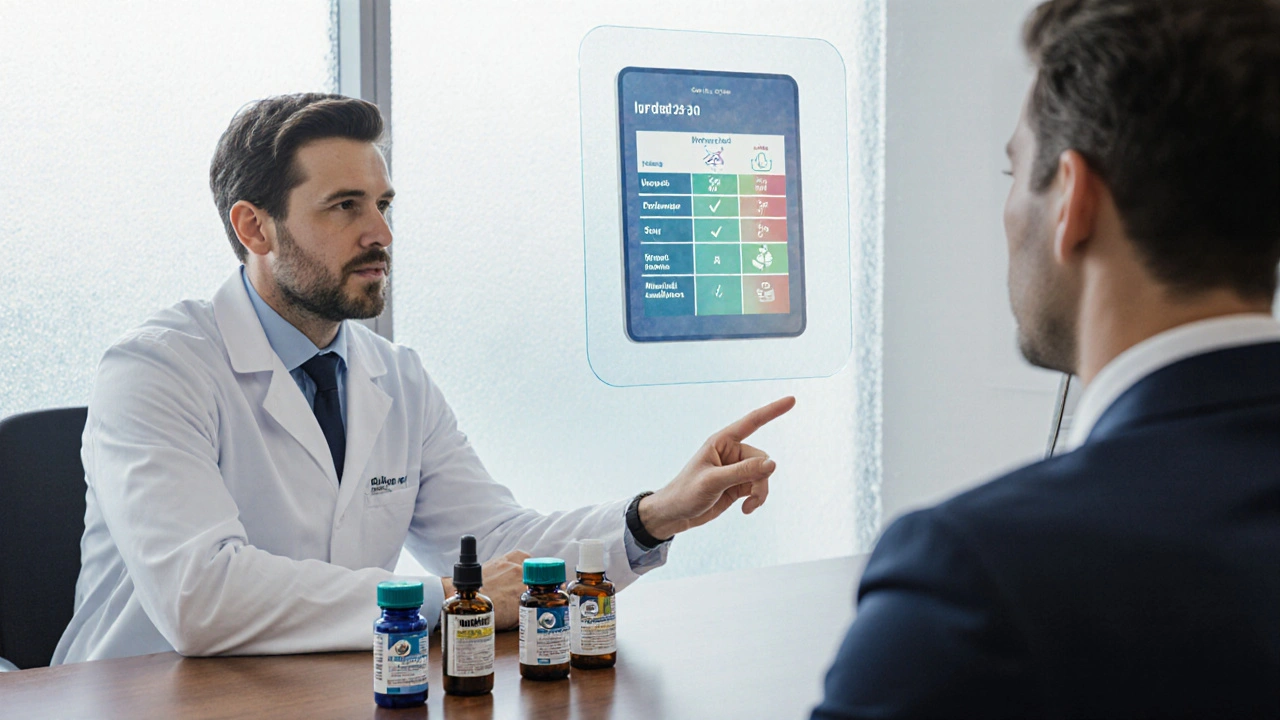Prostate Medication: What You Need to Know
When looking at Prostate medication, any drug used to treat prostate‑related conditions such as enlargement or cancer. Also known as prostate drugs, it helps men manage symptoms that affect daily life. Understanding how these medicines work lets you pair them with lifestyle changes, avoid unwanted side effects, and keep your sexual health on track.
Key Drug Categories and How They Fit Together
Most men start with Benign Prostatic Hyperplasia (BPH), a non‑cancerous growth that squeezes the urethra and causes frequent trips to the bathroom. To tackle BPH, doctors often prescribe Alpha‑blockers, which relax the muscle fibers around the prostate and improve urine flow. A second line of treatment involves 5‑alpha‑reductase inhibitors, drugs that actually shrink the prostate over time by blocking the hormone that fuels growth. Together, these categories form a two‑pronged approach: Alpha‑blockers give quick relief, while 5‑alpha‑reductase inhibitors provide long‑term reduction of prostate size.
Beyond the core classes, some men need medications that address cancer risk or hormonal balance. Hormone‑blocking agents, such as anti‑androgens, lower testosterone levels to slow cancer progression. Meanwhile, phosphodiesterase‑5 inhibitors (the same drugs used for erectile dysfunction) can help with sexual side effects that sometimes appear after starting prostate meds. Linking these drug choices to sexual health is crucial because many users report reduced libido or erectile challenges. Knowing which medication sits where in the treatment ladder makes it easier to discuss concerns with a doctor and find a plan that supports both urinary and sexual wellbeing.
While medication does the heavy lifting, lifestyle tweaks can boost results. Regular aerobic exercise improves blood flow, which supports both prostate health and sexual function. A diet rich in fruits, vegetables, and healthy fats—especially foods with lycopene and omega‑3s—has been linked to slower BPH growth. Managing stress through mindfulness or adequate sleep also helps, because chronic stress can worsen urinary symptoms and lower libido. Think of lifestyle changes as the “extra gear” that works alongside prostate medication to keep symptoms in check and improve overall quality of life.
Side effects vary by drug class. Alpha‑blockers may cause a sudden drop in blood pressure, leading to dizziness when standing up quickly. 5‑alpha‑reducing drugs can lower sexual drive and sometimes cause breast tenderness. Hormonal therapies bring risks like hot flashes or bone density loss, which is why doctors often suggest calcium or vitamin D supplements alongside treatment. Understanding these trade‑offs ahead of time lets you monitor symptoms and act fast if something feels off.
All this information sets the stage for the articles you’ll find below. Whether you’re curious about how specific drugs compare, want tips for coping with low libido, or need a quick safety checklist for buying generic options online, the collection covers the full spectrum of prostate‑related medication topics. Dive in to get clear answers, practical guidance, and the confidence to manage your health the right way.
Dutasteride (Dutanol) vs Alternatives: Efficacy, Safety & Choosing the Right Treatment
A detailed comparison of Dutasteride (Dutanol) with finasteride, minoxidil, and herbal options, covering efficacy, side effects, costs, and how to choose the right treatment.
Read more
